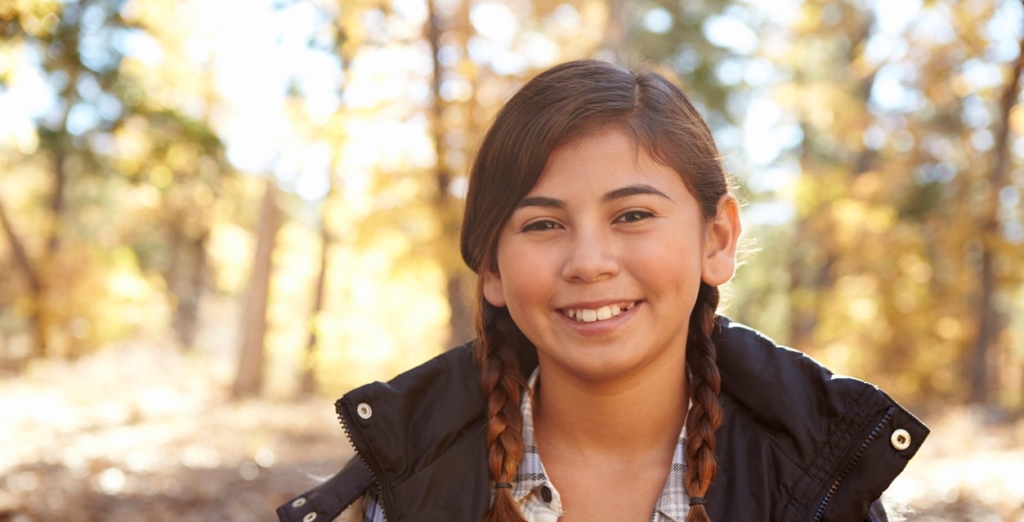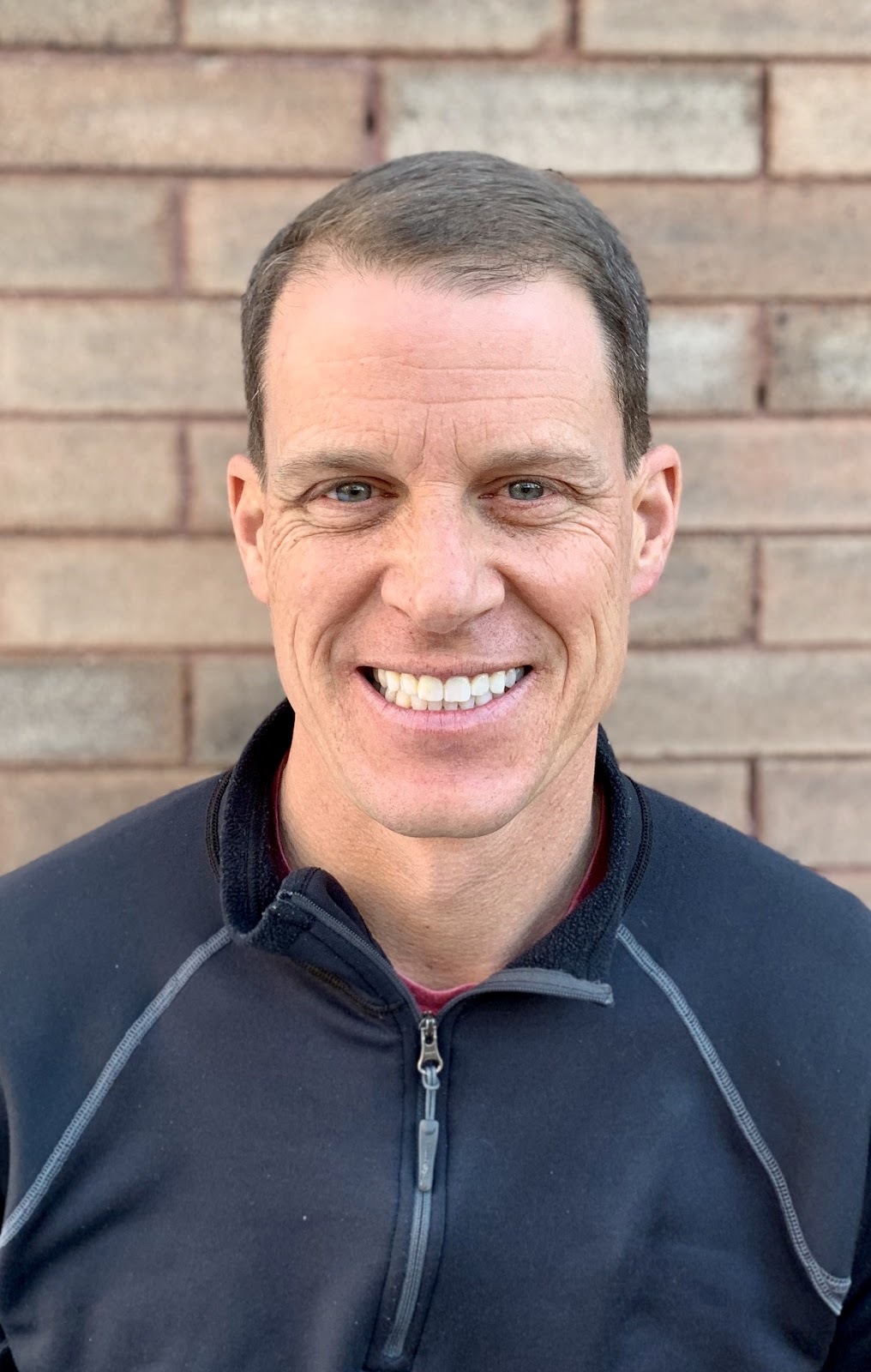Our belief was, “Let’s focus first on the character of the kids and the rest will fall into place”—a radical approach that got me in a little trouble as a leader.
Kyle Gamba, Founder, La Luz
Q. Can you share with us your journey as an education leader and what led you to launch La Luz?
Kyle: I started my education career as a substitute teacher, well into my adulthood. Soon after, the principal decided I knew just enough Spanish to be hired full-time as a fourth and fifth grade teacher—this decision coming just days before the start of the new school year. My career as an educator was off and running.
Then, I eventually became the principal at College View Elementary in southwest Denver. It was a strange moment because I arrived with very little leadership experience or formal training. But, there was one thing I knew I had going for me: excitement for the work.
Fast forward five years, and we transformed the fifth lowest performing school in the Denver Public School District—passing 75 other schools along the way—into a school that was meeting district expectations and serving as a true community school.
Our belief was, “Let’s focus first on the character of the kids and the rest will fall into place”—a radical approach that got me in a little trouble as a leader. But, that was the only way we believed we could cultivate “Better World Citizens.”
In addition to seeing what’s possible when you focus on the whole child, that experience revealed to me two other equally important lessons. First, our transformation wouldn’t have been possible without the help of many community partners, including Mile High United Way, Reading Partners, and City Year.
Second, I discovered that consistently asking (and answering) the question, “How do kids (and people more generally) best learn?” was critical to our success. Over time, the answer we kept arriving at was that authentic experiences hold the key to deep learning.
I want to prove that it’s not about sitting in a chair in a classroom or about the teaching that’s happening. Learning is a journey of creating authentic experiences and relationships.
Kyle Gamba, Founder, La Luz
I believe in this idea so much that my wife and I decided to leave our jobs in Denver and move with our three children to Monterrey, Mexico, where I served as the principal of a private, international school for three years. It was a true gift to live in and travel all throughout Mexico with our kids, and my hope is that they saw how authentic the learning is when you’re fully immersed in a foreign country, and genuinely embracing their culture and language.
Upon returning to Denver, I took a role as the interim principal at Denver Center For International Studies (DCIS)—a 6th-12th grade school. There were some brilliant things happening there, but the school was also struggling in a lot of ways. Too often, I would go into classrooms and witness some really painful things, like rote learning, boredom, and the lack of any real engagement. I immediately understood why many kids would not want to be there. And, the saddest part was that I (as an adult) was the only one who had the ability to stand up and leave once I lost interest.
When COVID-19 hit, and I learned that I wasn’t going to be leading DCIS anymore, it opened up the opportunity to finally do something about liberating kids from inauthentic learning. The accumulation of all these amazing and eye-opening learning experiences, including hundreds of conversations I’ve had with parents and students over the years, led me to begin exploring the idea of creating a learning environment that would be based on authentic experiences in the community—what has become La Luz.
Q: What have you learned from your conversations with families over the last decade?
Kyle: Our education system doesn’t prepare young people to thrive out in the world. I often ask, “What do you want for your kid?” and nine times out of 10, parents express that they want their kids to be really good people and have a good set of values.
Of all the things that parents share with me, they almost never say “strong academics.” I feel like it’s an underlying principle that parents want their kids to perform well academically, but we need to take that to the next level and ask, “Why is it important to be good at reading and writing?” as an example.
Cultivating those skills are about having the ability to communicate clearly to others and understand the knowledge you gain. Building these skills is essential to being good people able to thrive in the world, but there are so many ways to cultivate these skills beyond what we conventionally think of as “reading and writing” in an academic setting.
Q: Your professional experiences and conversations with families led you to starting your passion project, La Luz. What’s your vision for La Luz?
I’m hoping to create a bilingual school that uses experiential learning as a vehicle for creating dynamic learning for kids in the Latinx community whose needs are often not met in conventional schools. It will be community-based, competency-based, and integrate four guiding principles: 1) engaging experiences, 2) building relationships, 3) thinking and learning, and 4) knowing thyself.
La Luz will be learner-centered. It will allow young learners to have voice and choice in their learning.
My vision for La Luz five years from now is to have established a model that proves that kids can and do learn while immersed in the community. I want to prove that it’s not about sitting in a chair in a classroom or about the teaching that’s happening.
Learning is a journey of creating authentic experiences and relationships. This is why I call it a micro “unschool.” It is going to look and feel very different from the conventional experience that 99% of us adults share.
I want a potential parent or student to come into my school and ask: “How loved, supported, and engaged are your kids?” We should focus on measuring those three things!
Kyle Gamba, Founder, La Luz
This is about guiding kids to learn about the things that really matter, such as what it means to be an engaged citizen, understanding the good and bad of social media, financial literacy, health and nutrition, and how to effectively communicate through reading and writing. And, it’s about serving young people who don’t have access to a lot of opportunities, educational or otherwise.
We need more kids of color to experience all Colorado has to offer: hiking, rafting, biking, to name a few things. I don’t believe that every single person needs to have these specific experiences, but I do believe that you learn a lot about yourself through having new experiences, in general. I get excited about creating a future where all kids can thrive, explore, learn, and take advantage of the assets in their community.
In the short term, what success looks like for me is creating an environment where kids can come home exhausted but happy—because they’ve been thoroughly engaged and challenged throughout the day. And, I really want to not only model what education can be but also empower young people to make an impact in their communities and to lead fulfilling lives.
Q. What most signals to you that our education system needs to do something different?
Kyle Gamba: At some point as a new school principal, I found myself drinking from the firehose. There was so much to deal with. And, it hit me very early on that, as a leader in a new environment, I was the person learning the most in the building, which was really exciting and fulfilling for me, but also disheartening (and a little shameful) to know that there might be 400 or 500 students who are learning less than me, every day. It’s become my mission to flip that dynamic.
I think the whole learning journey should be a joy-filled experience. As an elementary school teacher, you really get to see that joy in young people, but then as they move along in their education, you start to see their joy, natural curiosity, and interest in learning slowly diminish.
One of the key things I noticed, in middle school and beyond, is that kids often don’t have a relationship with the teacher, and it becomes very obvious that many educators are simply covering material without any intention of cultivating real engagement.
Listen, teachers are working so hard to teach all the things they are supposed to teach, but our system is not set up for authentic experiences and deep relationships. We have a real opportunity for learning to be co-designed with families and have it happen in the community. We can’t just go back to the way learning was because it simply wasn’t working for most kids.
Q: If there is one thing you would shift in conventional schooling right now, what would it be?
Kyle: We really have to get past following current assessment standards. I want a potential parent or student to come into my school and ask: “How loved, supported, and engaged are your kids?” We should focus on measuring those three things! Very few parents I know would want much more for their kids. The learning will come when kids are supported, loved, and engaged.
I feel it has everything to do with if young people are able to remember the experiences they had at the end of the day. Too often, we ask kids what they learned in school, and they can’t remember. Conventional education just doesn’t hit home with kids.
The question I keep asking is: “How can we give kids authentic experiences where learning is naturally occurring?” We need to move kids away from the forced interactions that happen in schools.
Q. What’s an important message you want anyone reading this conversation to know about the work of reinventing education?
Kyle Gamba: When Henry Ford was designing cars and asked people what they wanted in terms of transportation, most people were going to say they wanted a faster horse.
Today, if you ask parents how they would transform education, most will simply say they want their kids to have a better education. I don’t think most people have a vision about the future of education or have thought about what schools could be beyond what they know from their own experiences.
It’s because 99% of us share a common memory of education. Whether you were in 6th-grade in 1974, 1992, or 2007, your story will be almost exactly the same as your kids or grandkids.
The world’s changed much faster than education has been able to keep up with. If education continues changing at this slow pace, it will continue to be the furthest behind industry in society.
There really needs to be a push to accelerate this change, and I’m excited to be at the forefront of helping to lead that push. That’s where I feel most comfortable. I feel that my experience and skillset have positioned me well to do this work.
Part of my story as a school leader is remembering what my wife and I want for our three kids. Like most parents, we want them to be good humans, to connect with other people, to have meaningful relationships, to have authentic learning experiences, and to lead fulfilling lives. I know we aren’t the only parents who want that, and I’m ready for the challenge of helping create those outcomes for other families.

